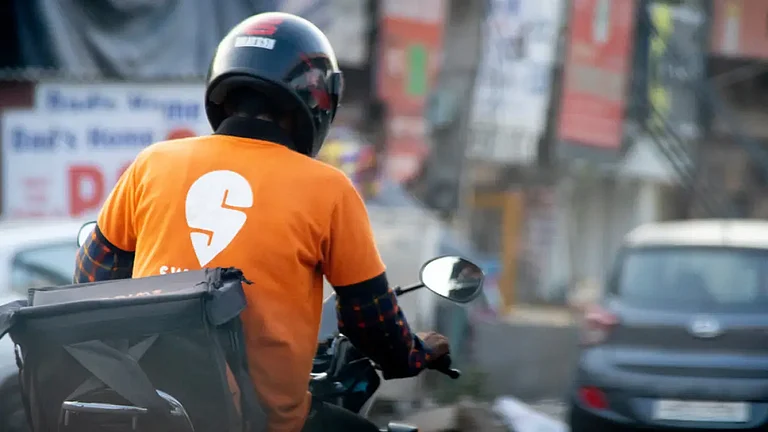Food delivery platforms Zomato and Swiggy have increased their platform fee by Rs 6 from Rs 5 in Delhi and Bengaluru. This is a 20 per cent increase by both platforms.
Now, a food item that was costing Rs 542 earlier will cost Rs 543 under the new platform fee. Sounds meagre? Not when you look at the quantity of orders. The food delivery platform reportedly delivers 2.0–2.2 million orders per day. So, a Rs. 1 increase on it would be quite a fortune.
Before delving any further, let's understand the concept of platform fees.
What is a Platform Fee?
In simple words, it's the fee charged for using a particular platform. It is separate from delivery charges, goods and services tax, handling fee, and others. Platforms such as BookMyShow or MakeMyTrip also add these fees to their ticket booking services.
This year, e-commerce platform Myntra also increased the platform fees for shoppers by Rs 20 on each order. Additionally, e-commerce platform Nyka also levied a convenience fee, or platform fee, of Rs 29 last year.
Why do Companies Charge Platform or Convenience Fee?
Simply speaking, companies charge convenience fees to improve their unit economics (the price at which each good or service is sold and the total profitability earned out of it).
Adwaita Nayar, CEO of Nykaa Fashion, reportedly stated that they see the potential to improve margins by implementing certain charges at the cart level to encourage better customer behavior. This approach is also expected to enhance profitability, she added.
Analysts, as per the Economic Times, speculate that platforms might not have much space to increase the restaurant commissions they get. Thus, along with platform fee, these companies are looking at advertisements to improve their unit economics, according to the report.
So, has it worked for e-commerce platforms? Zomato says it has. At the start of Q2FY24, the food delivery giant imposed a platform fee of Rs 2–5 per order. During the third quarter of FY24, Zomato declared a profit for the third time in a row. The increase in profits was attributed by the corporation to the implementation of a platform fee for all users in July of the preceding year.
2023: The Year of Platform Fee
In April last year, food delivery platform Swiggy introduced a Rs 2 platform fee. In an email statement to its employees, Swiggy’s chief executive and co-founder Sriharsha Majety said, “While our cash reserves allow us to be fundamentally well positioned to weather harsh circumstances, we cannot make this a crutch and must continue identifying efficiencies to secure our long-term.”
Speaking to Moneycontrol, the company spokesperson said that the platform fee is a small fixed charge applied to food orders. This fee supports the operation and enhancement of our platform, including improving app features to provide a seamless user experience.
Soon, in August, Zomato also followed suit and implemented a platform fee of Rs 2 in select markets. Since then, the e-commerce platforms have consistently increased their platform fees.
So, how will it affect me as a consumer?
As mentioned earlier, a Rs. 1 change is not prominently significant. The average order value (AOV) of food delivery platforms reportedly is Rs 420–450; thus, a Rs 1 change won’t be prominent.
Additionally, a report by brokerage firm UBS Securities published in October 2023 highlighted that while the immediate priority is to drive growth, the experience of mature markets shows consumers may be willing to pay more for delivery fees over time. Indeed, the recent introduction of the Rs 2 platform fee by Zomato and Swiggy (without any visible impact on demand) demonstrates that consumers are broadly agnostic of marginal increases in costs.
The platforms are of the opinion that there hasn’t been any significant decrease in their order volume since the platform fee was introduced. At the same time, the platforms are cautious about not having a steep increase in their platform fees. Will customer sentiment remain the same even after the food delivery platforms increase the platform fee significantly over a period of time? It remains to be seen.
However, not everyone is happy with it. A user wrote on X (formerly Twitter), “But for how long are they going to use this platform fee incrementation model to grow their income?”
Capitalmind founder-CEO Deepak Shenoy also took to X and wrote, “Massively reduced ordering from Swiggy/Zomato down to just once, maybe on a weekend, like today, and noticed their 'platform' charge is now Rs 6. Happy that I weaned myself off the daily ordering.”






.jpg?w=801&auto=format%2Ccompress&fit=max&format=webp&dpr=1.0)
























